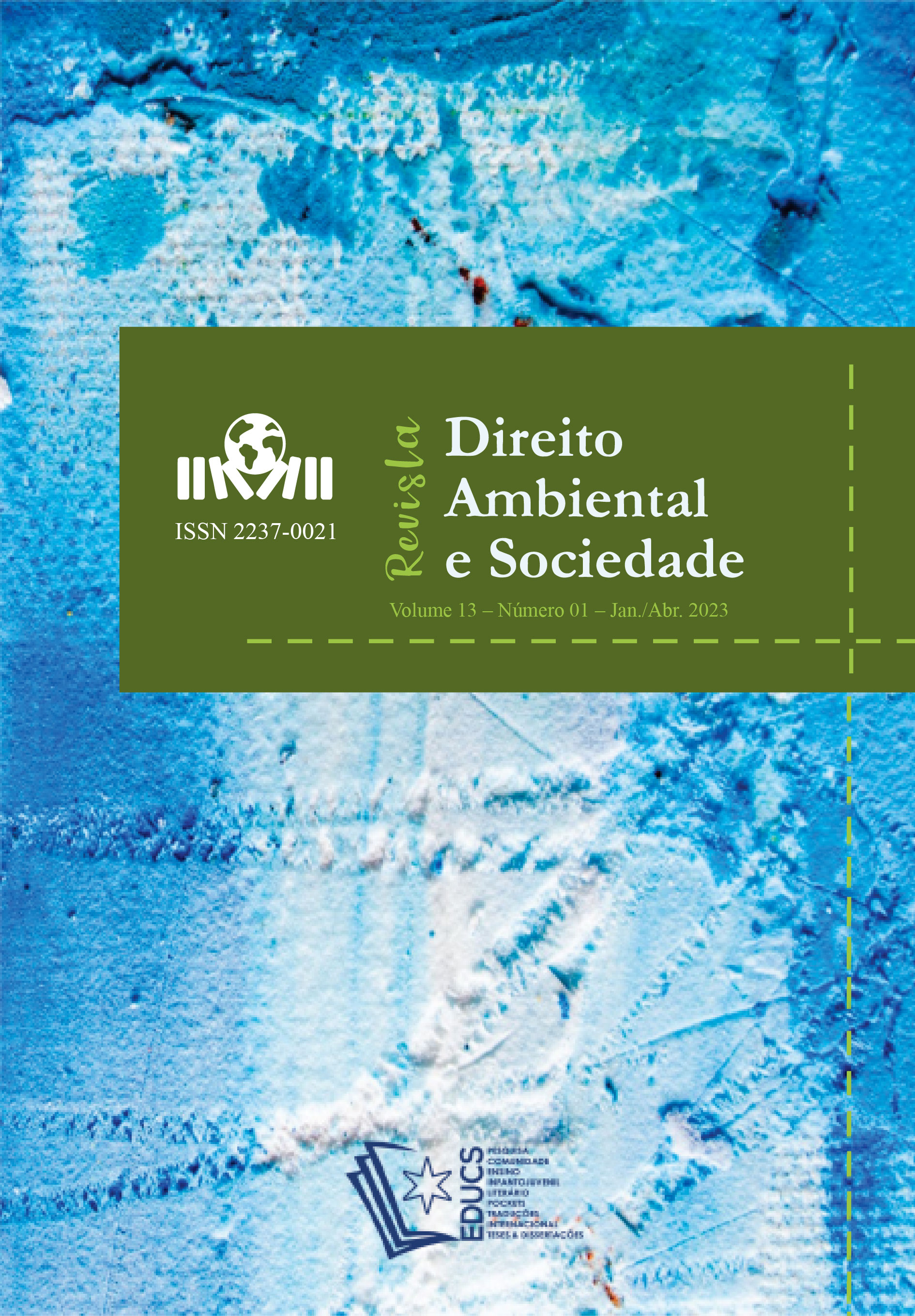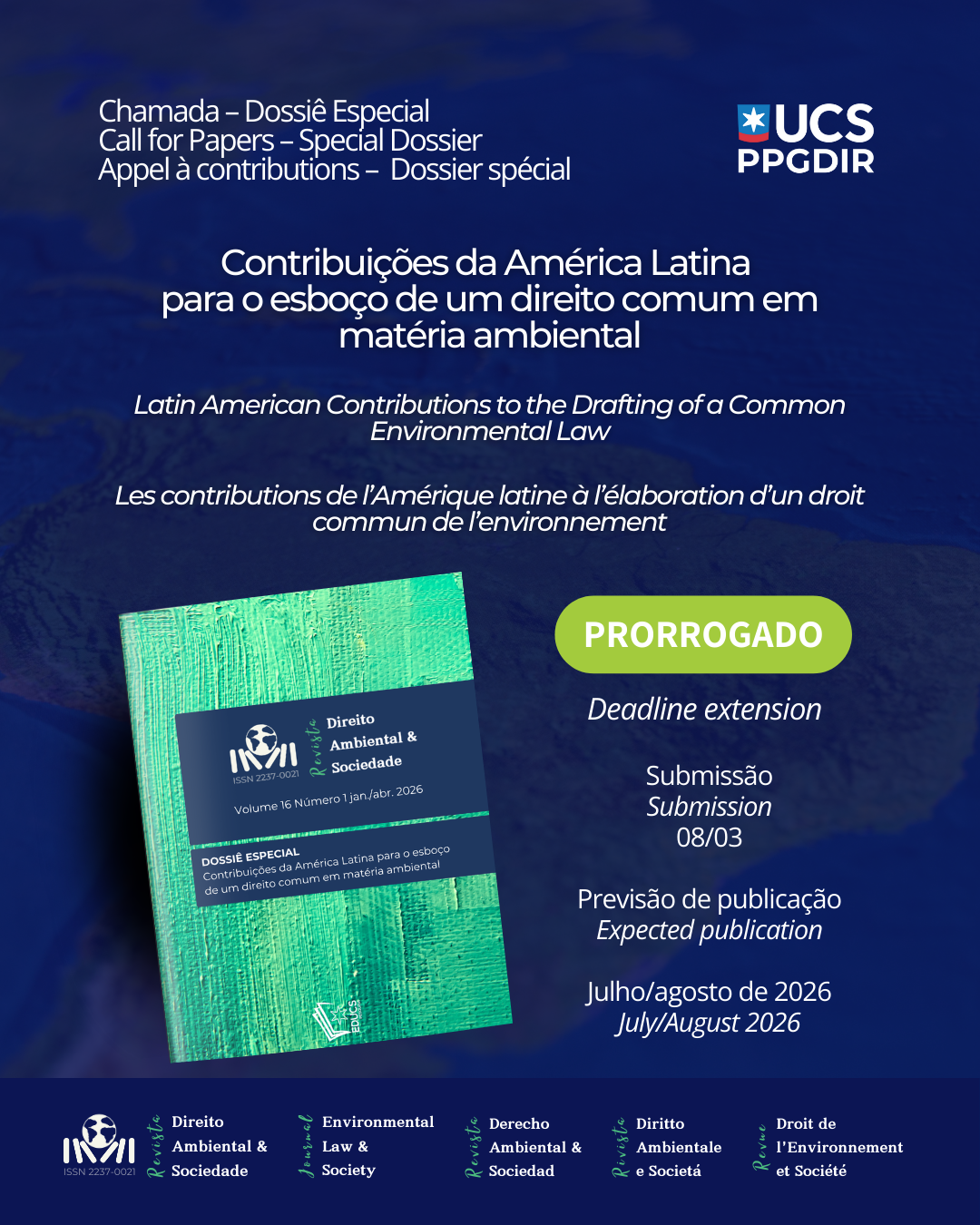The United Nations Human Rights Committee’s decision of january seventh 2020 and it’s impacts on enviromental refugees
DOI:
https://doi.org/10.18226/22370021.v13.n1.18Keywords:
Environmental Disruption, Migrations, RefugeesAbstract
This article aims to analyze the phenomenon of environmental refugees and how the decision of the Human Rights Committee of the United Nations (UN) of 7/1/20 on the Ioane Teitiota case impacts the legal situation of this phenomenon. This is an original and relevant work to the studies of Law since its object is the formal recognition of environmental refugees and this is a phenomenon that has intensified increasingly. The study is a deductive-structuralist analysis of the phenomenon at hand and the decision. This will be done by reviewing the updated bibliography, and examining studies and legislation, in addition to the decision itself. The decision sets a precedent for international committees and courts to analyze cases of environmental refugees and recognizes climate change as a threat to the right to life that can force subjects to migrate, generating non-return obligations on States. It is concluded that despite being unprecedented and of significant importance it is only a first step towards a satisfactory solution.
Downloads
Downloads
Published
How to Cite
Issue
Section
License
Copyright (c) 2023 Journal of Environmental Law and Society

This work is licensed under a Creative Commons Attribution 4.0 International License.
Você tem o direito de:
Compartilhar — copiar e redistribuir o material em qualquer suporte ou formato para qualquer fim, mesmo que comercial.
Adaptar — remixar, transformar, e criar a partir do material para qualquer fim, mesmo que comercial.
O licenciante não pode revogar estes direitos desde que você respeite os termos da licença.
De acordo com os termos seguintes:
Atribuição — Você deve dar o crédito apropriado , prover um link para a licença e indicar se mudanças foram feitas . Você deve fazê-lo em qualquer circunstância razoável, mas de nenhuma maneira que sugira que o licenciante apoia você ou o seu uso.
Sem restrições adicionais — Você não pode aplicar termos jurídicos ou medidas de caráter tecnológico que restrinjam legalmente outros de fazerem algo que a licença permita.
Avisos:
Você não tem de cumprir com os termos da licença relativamente a elementos do material que estejam no domínio público ou cuja utilização seja permitida por uma exceção ou limitação que seja aplicável.
Não são dadas quaisquer garantias. A licença pode não lhe dar todas as autorizações necessárias para o uso pretendido. Por exemplo, outros direitos, tais como direitos de imagem, de privacidade ou direitos morais , podem limitar o uso do material.














